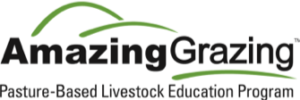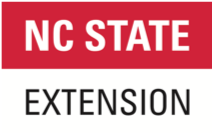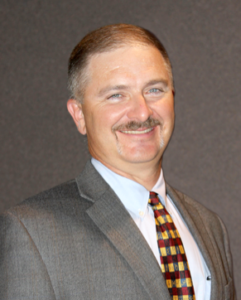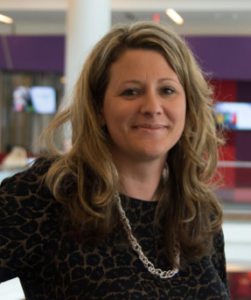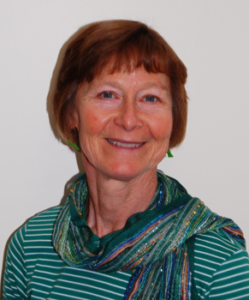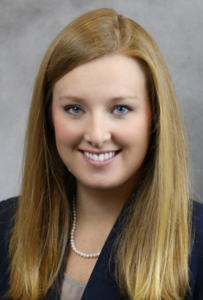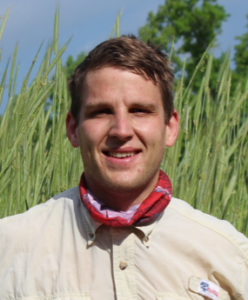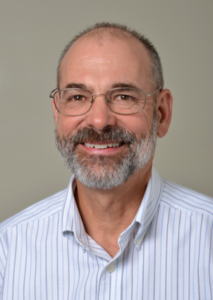Amazing Grazing After 30 Years
go.ncsu.edu/readext?583724
en Español / em Português
El inglés es el idioma de control de esta página. En la medida en que haya algún conflicto entre la traducción al inglés y la traducción, el inglés prevalece.
Al hacer clic en el enlace de traducción se activa un servicio de traducción gratuito para convertir la página al español. Al igual que con cualquier traducción por Internet, la conversión no es sensible al contexto y puede que no traduzca el texto en su significado original. NC State Extension no garantiza la exactitud del texto traducido. Por favor, tenga en cuenta que algunas aplicaciones y/o servicios pueden no funcionar como se espera cuando se traducen.
Português
Inglês é o idioma de controle desta página. Na medida que haja algum conflito entre o texto original em Inglês e a tradução, o Inglês prevalece.
Ao clicar no link de tradução, um serviço gratuito de tradução será ativado para converter a página para o Português. Como em qualquer tradução pela internet, a conversão não é sensivel ao contexto e pode não ocorrer a tradução para o significado orginal. O serviço de Extensão da Carolina do Norte (NC State Extension) não garante a exatidão do texto traduzido. Por favor, observe que algumas funções ou serviços podem não funcionar como esperado após a tradução.
English
English is the controlling language of this page. To the extent there is any conflict between the English text and the translation, English controls.
Clicking on the translation link activates a free translation service to convert the page to Spanish. As with any Internet translation, the conversion is not context-sensitive and may not translate the text to its original meaning. NC State Extension does not guarantee the accuracy of the translated text. Please note that some applications and/or services may not function as expected when translated.
Collapse ▲Amazing Grazing after 30 years.
Dr. Matt Poore
Department of Animal Science
North Carolina State University
The Amazing Grazing program was founded in 1987 by Dr. Jim Green and Dr. Paul Mueller of the NC State University Crop Science Department. Each of them had gone on sabbatical in New Zealand and they marveled at the level of forage and grazing management that was being done there. They returned to North Carolina and started promoting management intensive grazing and the use of a temporary fence to manage systems in a more ecological way, with educational demonstrations at a University Forage Demonstration Unit, at the Research Stations, and on private farms. The program ran strong for several years after I started in 1990, but by the mid-1990s, it was not very active. In the late 1990s, I was working with Dr. Glenn Rogers, then at our vet school, on a pasture ecology course for veterinarians, and Glenn suggested we use the Amazing Grazing name as it still had a good ring and the management considerations were essentially the same. Shortly after that, I started writing monthly for the Carolina Cattle Connection under the column name Amazing Grazing. Over the years that monthly column has attracted a lot of readers, and where ever I go folks say they really like it and encourage me to keep writing.
The program in its’ current form really took off in 2007 when we had a severe drought, but also received significant funding from the Tobacco Trust Fund Commission to conduct a drought management and pasture renovation educational project. We conducted training for all the agencies that support pasture-based agriculture across the state and a major cost-share program was rolled out to help producers reestablish pastures. Our educational emphasis was on improving grazing management, and we purchased temporary fence supplies for agents that wanted to use that technology in on-farm demonstrations.
Through several other grants, we continued developing the on-farm demonstration and workshop model and developed what we call “the Amazing Grazing Kit” which is a collection of electric fence supplies we would recommend to someone getting started with Adaptive Grazing Management. Working directly with many farmers and their advisors to teach them how to use temporary fencing has been very rewarding, and nearly all the cooperators we have had continue to use Adaptive Grazing Management. We currently have a grant proposal pending that would expand our electric fence educational effort across the southern region.
In 2014 we received a major grant from NRCS called a “Conservation Innovation Grant” that was focused on expanding our efforts in North Carolina by working with three research stations and six private farms to demonstrate various aspects of Adaptive Grazing Management and how it impacts Soil Health. Matching funding from the NC Cattle Industry Assessment Program (through NCCA), NC State University and the N.C. Department of Agriculture and Consumer Services’ Research Station Division helped us get this grant. This grant allowed us to start working with the University of Georgia on these concepts and also led to us hiring Johnny Rogers, who is the current Program Coordinator for Amazing Grazing. Johnny has brought a great deal to the team through his management of this project, and he is leading the way to future sources of funding to keep the program going.
This year we have been working with the Better Pastures NC group to do educational demonstrations on pasture renovation, and to purchase no-till drills and other equipment for counties needing equipment upgrades. That project has brought funding from a variety of sources as indicated in more detail in another article in this edition. We will use our on-farm demonstration model including providing the grazing kits to participating farmers as we work on these demonstration projects all across the state.
One other notable activity of Amazing Grazing is our annual school for NRCS national staff which we conduct for the NRCS National Employee Development Center. This 8 day training happens in June each year, and we take one day to visit CEFS. The impact of the course has been broad and we continually interact with former students that are widespread throughout the organization (NRCS). Demonstrations they were shown during the course are being delivered regularly in their home states as part of their local efforts. A in the 20 times the course has been taught, we have had a total of 423 NRCS employees from all 50 states, Guam and Puerto Rico have been trained throughout the history of the course. Pastureland Ecology I is a key part of the NEDC grazingland curriculum, and there is usually a waiting list to get into the course.
Amazing Grazing is expanding rapidly, and in the last year we conducted or participated in 33 workshops, schools, seminars, or other events with over 2000 participants. This past fall we had workshops focused on special audiences including Youth, New and Small Scale Farmers, and Equine. Our programming in other states has also expanded, and by the end of 2018 we will have conducted workshops or participated in other educational programs in eight states other than North Carolina including Mississippi, Alabama, Georgia, South Carolina, Tennessee, Virginia, West Virginia, and Kentucky.
The Current Amazing Grazing Team
Currently, the core team is made up of Johnny Rogers, April Shaeffer, Deidre Harmon, Sharon Freeman, Sam Ingram, and Matt Poore. Key associates of the program include Dr. Alan Franzluebbers (USDA Soil Scientist), Dr. Paul Siciliano (Equine Management), Dr. Jim Green (Forage Agronomist), Dr. Geoff Benson (Economist), Dr. Dan Poole (Cattle Reproduction specialist), and Dr. Harrison Dudley (Beef Veterinarian), along with colleagues from the various universities we are now collaborating with.
Johnny Rogers, Program Coordinator. Johnny has been with the Amazing Grazing team since 2014 and before that time he was one of our cooperating farmers. Johnny was a graduate student in Animal Science in the early 1990s and he did his research on supplementing stocker cattle grazing bermudagrass irrigated with swine lagoon effluent. Johnny coordinates activities of the CIG projects and all the other educational activity within North Carolina. He is also an active advisor to the North Carolina Forage and Grassland Council and has taken leadership for working with the program of the Winter Forage Conference Series. Johnny has developed several key concepts including “the Power of One Wire” and “The Twelve Step Plan to Amazing Grazing” which will be major features of future programming. Johnny has a high level of credibility within the beef industry due to his diverse experience and national leadership roles. He also has experience with raising and finishing cattle, sheep, goats, pigs, turkeys, and chickens on pasture, and is one of the few extension educators in the country with expertise in grazing sheep on solar farms.
April Shaeffer, Technical Coordinator. April has worked with the program for more than 15 years in her role as the primary research and extension technician for grazing beef cattle programs. April is the key to our delivering well planned and executed workshops that leave participants with the impression that we do first-class work. April works to manage our research laboratory including providing a lot of guidance to our graduate students. She is responsible for our research protocols and spends a lot of effort in the field helping students collect data. Several years ago April developed an educational program called “NC Leadership and Cattle Handling for Women Producers”. This program has been very popular and has clearly impacted the lives of many women producers trying to establish a role in managing their farm and doing the hands-on cattle work. The program has been funded by a variety of sources including the NC Cattlemen’s Association and the National Cattlemen’s Beef Association. In 2016 April and her program was the subject of an episode of a national television series (FarmHer). Currently, this program is being delivered in South Carolina, North Carolina, Georgia, Alabama, and Mississippi.
Sharon Freeman, GPS Coordinator. Dr. Freeman plays a unique role in the Amazing Grazing program. She worked for 27 years managing our Ruminant Metabolism Research Unit. During the last 8 years of that great career, she worked on a PhD focused on the use of alternative feeds in beef cattle diets. She also worked with research projects with many of our students and made big contributions to our understanding of how to manage urinary tract stones in small ruminants and captive wild ungulates (giraffes). After retiring Sharon joined the Amazing Grazing Team. She worked to learn GPS and GIS systems and has been a key support in our on-farm research through the development of maps and coordination of grid sampling to determine soil nutrient distribution. Sharon also coordinates research and extension activities at the CEFS Beef Unit, part of the Cherry Research Farm in Goldsboro, and has lead her own research projects focused on coastal plain systems including the use of annual legumes overseeded into bermudagrass pasture, the use of alternative varieties of seeded bermudagrass, the use of crimson clover mixed with ryegrass, and alterative weaning strategies for beef calves. Sharon also leads a focused extension effort for military personnel who are trained on basic livestock management techniques so they can work with local farmers when they are deployed abroad.
Dr. Deidre Harmon, Western NC Livestock Specialist. Deidre is the newest member of the Amazing Grazing Team, and in her role, she is doing applied research and extension work to support the livestock and forage extension agents in the mountain region. Deidre graduated from the University of Georgia with training in Forage Agronomy. She received her Master of Science degree from Virginia Tech and she is a native of Galax, Virginia. Her MS research was on mineral nutrition of grazing beef cattle, and her Ph.D. work was on the use of summer annual forages in grass-fed beef production. We are excited to have Deidre on the team and look forward to her leading initiatives to help mountain producers implement forage management systems that work for them.
Sam Ingram, Ph.D. student. Students are an integral part of the Amazing Grazing Program. Sam came to us from Cooperative Extension in Georgia where he served as an extension agent for 5 years. During his time as an extension agent, Sam earned a Master of Science degree, and his research was on grazing Canola as a dual-purpose grazing and grain crop. Sam’s experience as an agent stimulated him to go back to graduate school to get a PhD with the ultimate goal of becoming an extension specialist. Sam’s research is on evaluating systems for converting toxic to non-toxic fescue, with a strong interest in how the approach influences cattle performance, soil health and economics. Sam brings an interest in the use of unmanned aerial systems (drones) in agricultural management, and has been helping shoot videos on our CIG demonstration farms and in his research. Sam is working on his licensing to operate drones, and we are excited to integrate that technology into our programs. Sam also mentors undergraduate students on their research projects.
Dr. Matt Poore, Program Director. Dr. Poore has been working for 28 years serving the beef producers of the region as an Extension Beef Specialist. His work has focused on the use of alternative feeds, forages and forage management strategies to economically improve production and to reduce impacts on the environment. Dr. Poore is responsible for making sure funding is available to conduct Amazing Grazing programs, to report on progress to various funders, and to carry the Amazing Grazing message to other states and countries. He leads the NC BEEF System, which is a collaboration of the six research stations that work on cattle projects, and also serves as the Animal Science Extension Leader. Recently Matt published production guidelines for local, pasture finished, and grass-finished beef that are being used across the region to help producers develop systems to produce high-quality beef for the local market. He was recognized with the Merit Award from AFGC last year, and also received the 2018 NC State University Alumni Association Outstanding Extension and Outreach Award, then highest honor possible for an extension faculty member at NC State University.
Upcoming activities of Amazing Grazing.
There will be many opportunities to interact with the Amazing Grazing Team in the coming year. We are collaborating with several other groups to bring you educational programs including the NC Forage and Grassland Council, Better Pastures NC, and the Alliance for Grassland Renewal. We are very excited to have Kathy Voth coming in January for our NCFGC Winter Conference Series, and hope that you take advantage of that opportunity. We will have an educational booth at most industry trade shows throughout the spring, starting with the AFGC Annual Conference in Louisville, KY, and then at most the area beef conferences and the North Carolina Cattlemen’s Conference. We will also be conducting Amazing Grazing seminars or workshops in North Carolina, Tennessee, Virginia, and South Carolina.
A key activity we have coming up is a series of Novel Tall Fescue Renovation Workshops conducted in collaboration with the Alliance for Grassland Renewal. The Alliance has been operating in Missouri for about 5 years, and they have dramatically helped producers be successful as they adopt these new fescue varieties. The program will be presented in March in MO, KY, GA, SC, NC, and VA, and will team the country’s best fescue researchers and extension specialists, along with seed industry experts to bring you the detailed management considerations necessary for a good outcome with Novel Endophyte Infected Tall Fescue. We are excited to participate in this advanced training for producers that have decided to take control and work to get rid of some of their toxic fescue while rebuilding their forage system. If you are set to renovate pastures in 2019 we strongly recommend you take advantage of this opportunity.
Alliance for Grassland Renewal Workshop Schedule:
Blackstone, VA – March 11, 2019
Salisbury, NC – March 12, 2019
Newberry, SC – March 13, 2019
Calhoun, GA – March 15, 2019
Mt. Vernon, MO – March 18, 2019
Princeton, KY – March 20, 2019
For more details go to the Alliance for Grassland Renewal website.
We plan to keep growing and adapting the Amazing Grazing Program well into the future. There will be many opportunities for you to participate in our workshops or on-farm demonstrations, so if you are interested, talk to your extension agent or come by our booth when you see us out on the road. Go to our facebook page to see our local upcoming workshop schedule.



